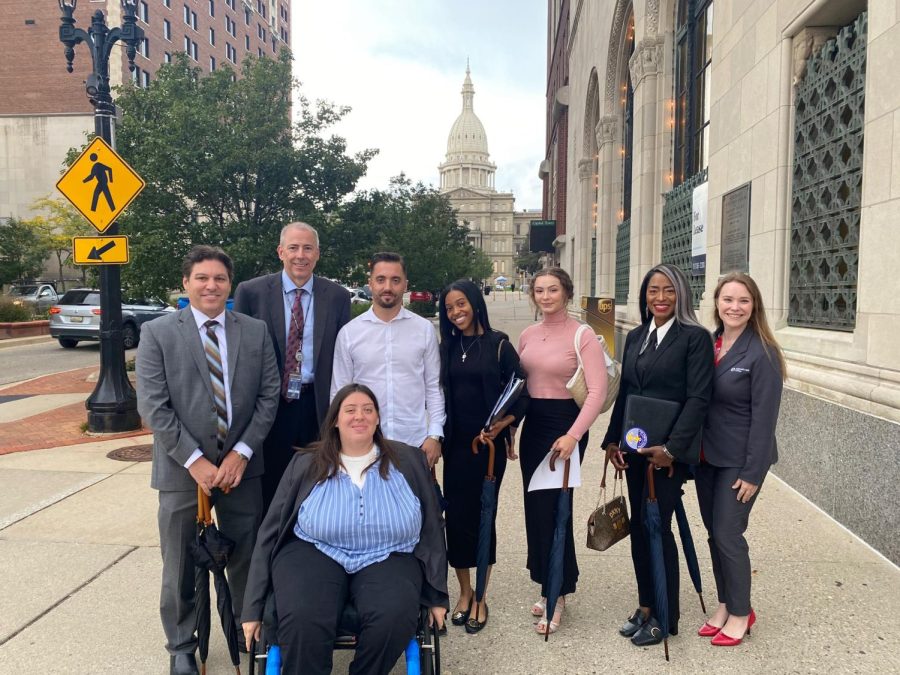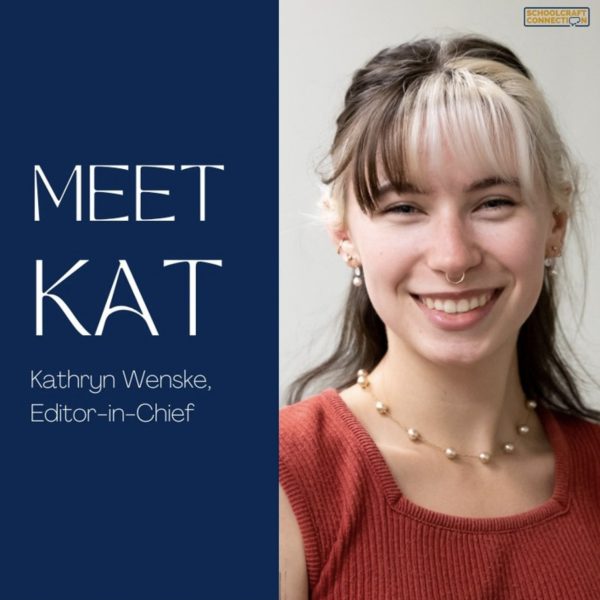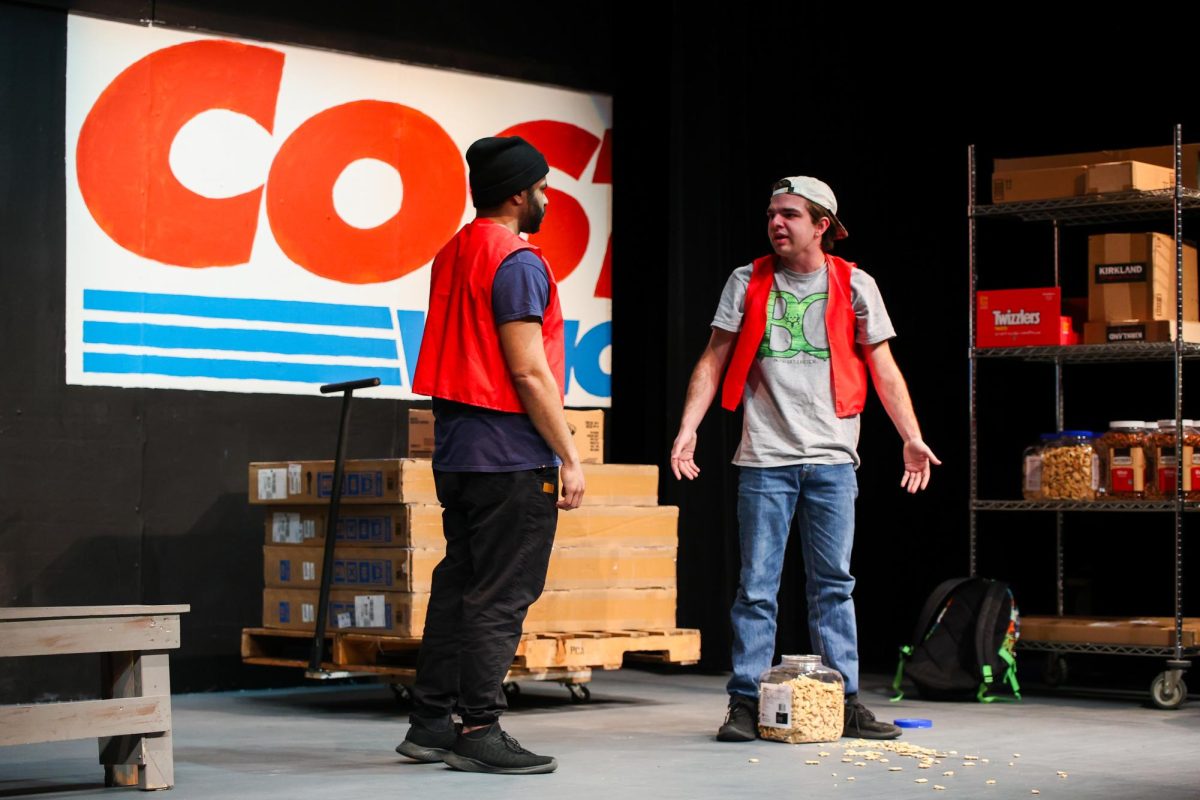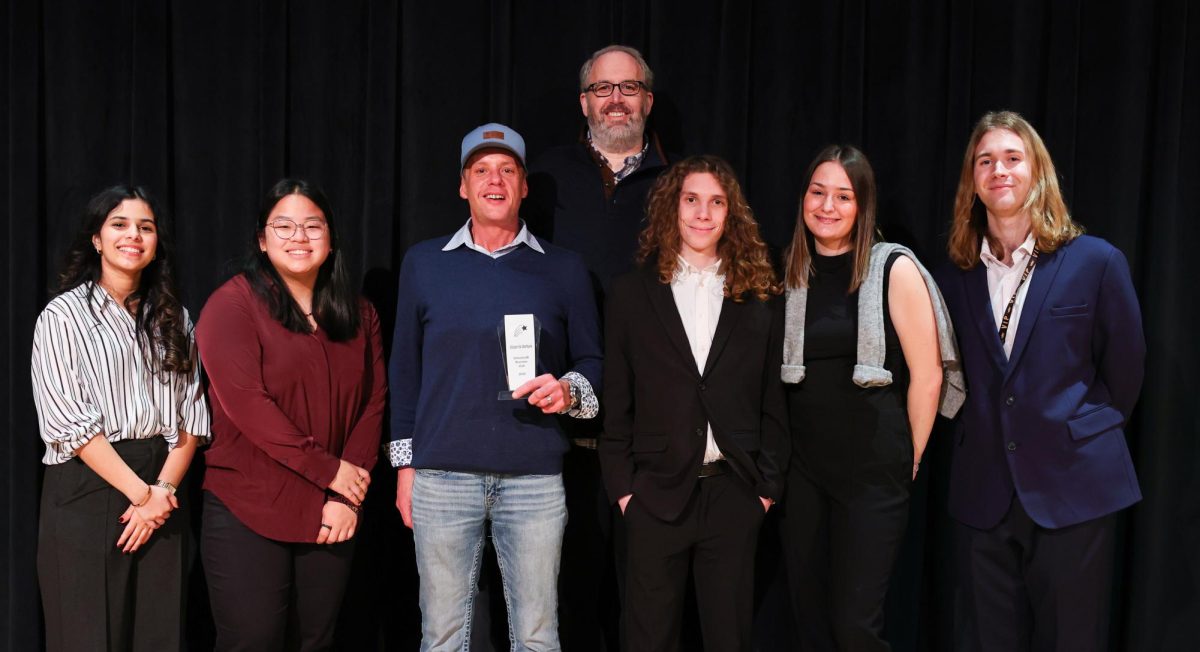Lobbying in Lansing
Phi Theta Kappa Honors Society speak to lawmakers about funding
November 23, 2022
On Sep. 21, Schoolcraft’s Phi Theta Kappa (PTK) Honors Society Chapter lobbied in Lansing with legislators of the State of Michigan regarding the financial disparities in the State’s Community College funding. Joined by Schoolcraft’s President Dr. Glenn Cerny, Diversity, Equity and Inclusion (DEI) Research Analyst Catreese Qualls, Director of Student Activities and PTK Advisor Todd Stowell, Chief of Staff Beth LaForest and current Omicron lota Chapter member Madison Ling, Vice President of Communications/PTK officer Daniel Shahollari, and Vice President of Leadership/PTK officer Melia Conners and the President Madison Loving vocalized this specific task which strives to strengthen the Chapter and the Schoolcraft Administration’s relationship.
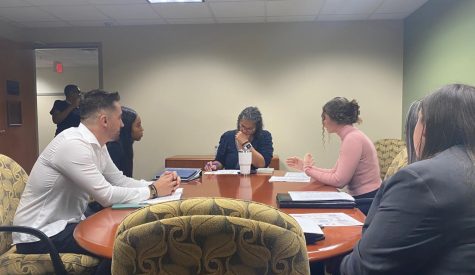
“My specific reason for meeting with them was to embrace the opportunity of bringing to light the unequal base of funding that is present in the most efficient way possible,” said Loving. “More importantly, it was imperative for me to bring in the student perspective and create productive dialogue of past and current inconsistencies.”
PTK chapters work on college projects with the purpose of making their college a better place and have the opportunity to work with faculty around campus: in this case, the State’s legislators. As this was PTK’s first project of this semester, their two objectives included spreading awareness of the financial disparities community colleges receive and to uplift the Schoolcraft College’s vision, mission and plan by this specific mission.
“Inclusion, Diversity, Equity and Access are part of the College’s strategic plan for the future and are strongly supported by the administration as exemplified by the campus walkthrough Dr. Cerny and I completed together in Sept. 2021, soon after I first met him,” said Ling. “Schoolcraft is special because it’s unafraid of asking sensitive questions that don’t have a concrete, or widely accepted answer and instead finding the best solution possible.”
The first discussion that contributed towards this project was with Jon Lamb, Schoolcraft’s Chief Financial Officer, this past spring who identified some of the challenges Schoolcraft College faces; specifically the limited funding by the static formula community colleges go by. This formula is described by having ‘three legs’ that entails how community colleges are funded and maintains the affordable education community colleges offer; one-third in state appropriations, another third in property taxes and the last in tuition. Schoolcraft only receives 15 percent of state appropriations as opposed to the 35 percent of the college’s overall budget. This is disproportionate to many other community colleges. As a result, the only ‘leg’ that can be raised to combat this loss is raising tuition; which opposes Schoolcraft’s mission of accessibility and affordability.
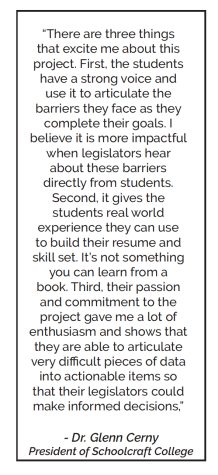 After meeting with Cerny in the late summer, the students researched the problem and came up with an infographic to present to the legislators. PTK spoke with Representatives Felicia Brabec, Amos O’Neal and Matt Koleszar and Chief of Staff Dan Centers for Senator Dayna Polehanki who joined, like Loving and Shahollari with the State’s representatives.
After meeting with Cerny in the late summer, the students researched the problem and came up with an infographic to present to the legislators. PTK spoke with Representatives Felicia Brabec, Amos O’Neal and Matt Koleszar and Chief of Staff Dan Centers for Senator Dayna Polehanki who joined, like Loving and Shahollari with the State’s representatives.
“Talking with the representatives was much easier than I first thought. At our first meeting, I was a little anxious about the topic I had prepared to speak with the representative, but they made it so easy for each and every one of us while listening carefully to our proposal about the importance of supporting Community Colleges across Michigan,” said Shahollari.
After conducting this meeting with the representatives, as well as receiving their feedback, PTK and those who joined have many anticipations for what will come of the time they spent discussing their concerns regarding the limited funding community colleges in Michigan receive. Some hope to see alterations to the State’s budget in regards to funding, some hope that this start will further push awareness for these disparities and in return will solve these problems sooner.
“My hope is that many more people will find out about the problems that have occurred for over 30 years now within the funding of Michigan community colleges. I not only hope that people talk about it, but they do something impactful with the information they now know, or will soon know,” said Conners. “I hope that they see that this is not something that only affects community colleges budgets, but also severely impacts the students and the workforce.”
Their anticipations may very well see results as this task alone made by students leaves an impression on legislators. Michigan State Representative Laurie Pohutsky finds it valuable to have the opportunity to talk about the realities of being a student at a community college and to gain that perspective: “I would not have that benefit if students did not take the time to meet with me and make their voices heard.” She is very likely not the only representative to share this viewpoint, which gives some faith that the reduced funding will see some kind of resolution.
“There are three things that excite me about this project. First, the students have a strong voice and use it to articulate the barriers they face as they complete their goals. I believe it is more impactful when legislators hear about these barriers directly from students. Second, it gives the students real world experience they can use to build their resume and skill set. It’s not something you can learn from a book. Third, their passion and commitment to the project gave me a lot of enthusiasm and shows that they are able to articulate very difficult pieces of data into actionable items so that their legislators could make informed decisions,” said Cerny.



